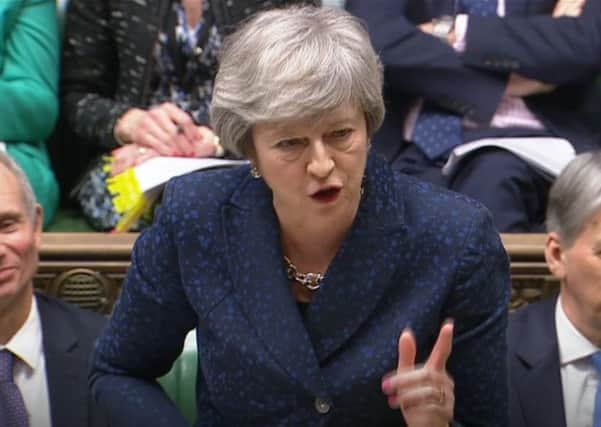Analysis: Blocking trade role shows increasing power of Scots Tory MPs


We reported that senior Scottish Conservative sources indicated that the party’s bloc of MPs at Westminster will block any moves by Theresa May to allow the Scottish Government a formal role in post-Brexit trade talks.
Ms Sturgeon took to Twitter to write: “For much of last 20 years, Scottish Tories have tried to reinvent themselves as pro devolution.
Advertisement
Hide AdAdvertisement
Hide Ad“This story is latest reminder that it’s actually an inflexible unionism that drives them. In what other country would elected MPs argue against greater influence over key decisions?”
The story is a reminder to both the Scottish Government and the UK Government that the Scottish Conservative group can not always be relied upon to simply nod through the inter-governmental plans signed off by Nicola Sturgeon and Theresa May.
We look at the circumstances and changes that have led to increasing power among Scottish Conservative MPs.
DUP in the air
Perhaps the biggest change in parliamentary circumstances that have allowed the Scottish Tories to have an effective veto over post-Brexit trade plans has been the intransigence of the Democratic Unionist Party.
Arlene Foster’s party are the nominal coalition partners of Theresa May’s Conservatives, though not in the formal sense of the Tory/Lib Dem coalition of 2010-15.
The shaky nature of that coalition – which was famously underpinned by a £1bn budget boost for Northern Ireland – has been continually exposed throughout the Brexit process.
All ten of the party’s MPs voted against the deal proposed by the Prime Minister earlier this month, helping to inflict one of the worst defeats in parliamentary history on the Government.
Like many pro-Brexit political groupings, the DUP’s chief gripe with the Brexit deal is how it could impact the border between Northern Ireland and the Irish Republic.
Advertisement
Hide AdAdvertisement
Hide AdWhile Arlene Foster has insisted that the confidence-and-supply agreement is not dead, there remain few signs of life as Theresa May attempts to win the party round to her Brexit deal.
Opportunity Knocks
It is into this breach that the Scottish Tory backbench contingent of 12 has arguably inserted itself.
Like their Ulster-based colleagues, the Conservatives North of the border prioritise the preservation of the Union above almost all else.
They seem keen to appear to use that power to leverage the Prime Minister into addressing issues that they feel are important in Scotland, with the Autumn Statement of 2017 giving Chancellor Philip Hammond the opportunity to pay tribute to the bloc’s tenacity.
However, the grouping, which includes a wide range of views on Brexit, is clearly not averse to playing hardball with the Government where Scotland is concerned.
Today’s Scotsman story will be seen as a stark reminder that like the DUP, the Scottish Conservative grouping cannot necessarily be relied upon to automatically back the Government.
With Theresa May operating a minority Government, every vote counts, and losing a dozen could stop even her non-Brexit priorities in their tracks.
Room for Improvement?
While the move to block the role of the Scottish Government in trade talks is not necessarily likely to be top of Theresa May’s in-tray, there are signs that she is beginning to take the Scottish Conservative grouping more seriously.
Advertisement
Hide AdAdvertisement
Hide AdHaving u-turned on a threat to resign, Scottish Secretary David Mundell will also feel under pressure from his own backbenchers to ensure that he is prioritising the union in Brexit talks.
In order to help bridge that gap, Aberdeenshire MP Andrew Bowie was quietly promoted over the Christmas break to become a Principal Private Secretary (PPS) to Theresa May.
While nominally the most junior role in Government, Bowie will likely be tasked with ensuring smoother relations between the Government and a bloc of Scottish Tory MPs who are clearly keen to flex their muscles as the Brexit picture remains unclear.
Today’s significant developments, prompting a furious response from the First Minister, suggest that Mr Bowie is set to have his work cut out.
